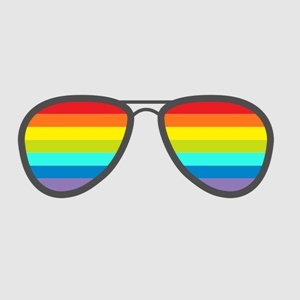
Finding doctors at U.S. teaching hospitals who consider themselves competent to care for lesbian, gay, bisexual and transgender (LGBT) patients may be difficult, suggests a new study.
Sexual minorities
Few such hospitals reported having ways to identify doctors knowledgeable about LGBT health, and only a few hospitals offered comprehensive LGBT-competency training to their staffs, researchers report in the American Journal of Public Health.
"As medical organisations we really should be making a better effort to identify providers that can provide competent healthcare," said Dr. Allison Diamant, the study's senior author from the David Geffen School of Medicine at the University of California, Los Angeles.
Read: Lesbian, gay and bi adults
LGBT people suffer from the same conditions as other people do, but their outcomes tend to be worse, according to the U.S. Centres for Disease Control and Prevention (CDC).
For example, the CDC says gaps in healthcare between sexual minorities and their heterosexual counterparts have been reported for a number of conditions, including asthma, diabetes, heart disease and substance abuse.
The researchers write that the U.S. government recently described a shortage of healthcare providers culturally competent in LGBT health. Diamant said LGBT people have asked her which doctors she could recommend.
"I've been thinking for a very long time what other people do," she said.
For the study, led by medical student Joshua Khalili, the researchers asked the chief medical officers or deans of the 138 accredited U.S. teaching hospitals to complete a 15-minute survey in 2012. Half of the schools responded to the survey.
Comprehensive LGBT-competency training
Only a handful of respondents reported procedures or policies to identify LGBT-competent physicians.
Overall, 15 percent of respondents said their hospital had a list of LGBT-competent doctors. Most of those lists were available to the public on the internet. A couple of the lists were internal documents.
Sixteen percent of respondents said their institutions offered comprehensive LGBT-competency training. About a third said there was some level of training available, but over half said they offered no training.
About 80 percent of respondents said they wanted to do more to develop policies and programmes to enhance the care of LGBT people. Diamant called that finding "impressive and enlightening".
Read: Gay, lesbian and bisexual expert FAQs
The next step would be to repeat the survey to see if any of these measures, including the number of people who respond to the survey, is different, she said.
Dr. Harvey Makadon, director of the National LGBT Health Education Centre at The Fenway Institute in Boston, told Reuters Health that he was not surprised by the study's results, but he questioned how helpful such a list of doctors would be.
Schools are behind
"While it's nice to informally know there are certain doctors who are welcoming and inclusive of LGBT individuals, it does not mean it's quality care," said Makadon.
What is important is to have doctors who are supportive and affirmative, said Makadon, who wasn't involved in the new study. For example, it's important to find a doctor who will take the time to listen to patients and their needs.
As for the training of doctors and nurses, he said schools are behind and there is a need for training across the country.
He also said it's important for hospitals and medical groups to realize that LGBT people are a big segment of the population.
Read: Stigma still affects gays and lesbians
"When organisations are seen as leaders for LGBT people, people will go there for care," he said. "What people need to be thinking about is not only training people, but showing they're welcoming of LGBT people."
For example, medical organisations can have LGBT educational materials available, include LGBT imagery in their marketing, and make sure their forms are up-to-date with gender-neutral terms like "partner" or "parent".
SOURCE: http://bit.ly/1DaUFWj American Journal of Public Health, online April 16, 2015.
Read more:
Doctors lack data on LGBT community
New York LGBT youths engage in 'survival sex'
Image: Rainbow glasses from Shutterstock




 Publications
Publications
 Partners
Partners










